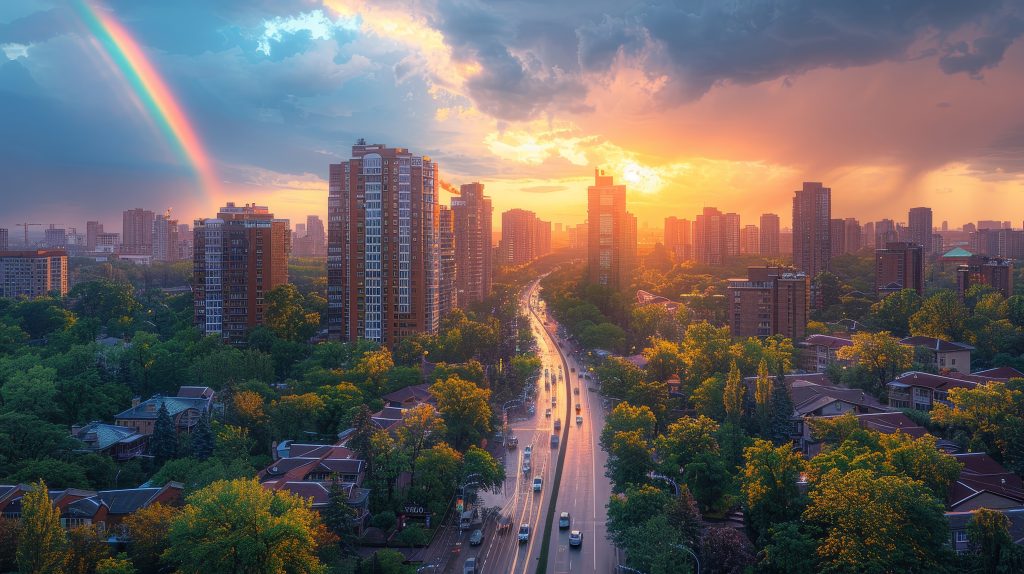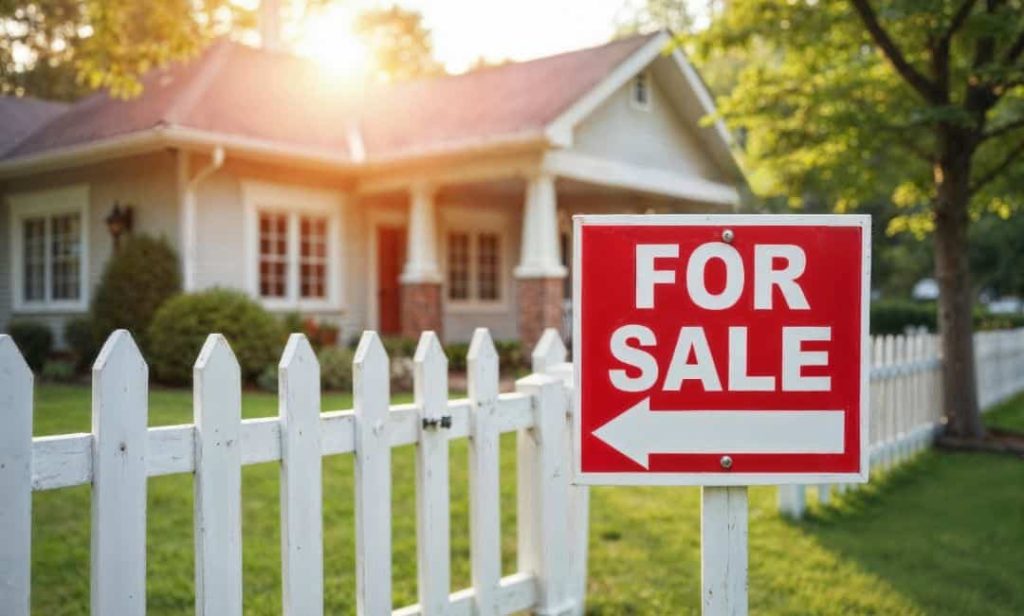
The Brampton housing market is one of the busiest in Ontario. Whether you are buying your first home, moving to a bigger one, or looking to invest, there are many options.
But with so much happening, it can feel confusing. Prices keep going up, and many people wonder if homes are still affordable. You might worry about paying too much or missing a good deal.
That’s exactly why I put this guide together. I want to help you understand what’s going on in Brampton right now. I’ll walk you through the latest trends, how prices are shifting, and which neighborhoods are worth a closer look.
If you plan to buy or sell in Brampton, this guide will give you the knowledge to make smart choices.
Why Brampton’s Housing Market Remains Strong?
Brampton is growing quickly. With over 700,000 people, it is now one of Canada’s fastest-growing cities.
This strong growth keeps the Brampton housing market very active. More people are moving here to buy homes, and many investors are paying close attention to the market.
But what makes Brampton so attractive to buyers and investors?
1. Great for families
Brampton has excellent schools, large parks, playgrounds, and many sports facilities. Families love the safe neighborhoods and the many activities for children.
2. Close to jobs
Brampton’s location is very convenient. It is near Toronto, Pearson International Airport, and major highways like Highway 401. This makes it a great choice for people who need to commute to work.
3. Diverse and welcoming
Brampton is popular for its cultural diversity. People from many different backgrounds live here, creating a vibrant and inclusive community.
4. Price-to-Income Ratio
Home prices in Brampton have increased much faster than income levels. Because of this, many buyers are now choosing more affordable options, such as townhomes or condos, instead of detached houses.
5. Inventory Trends
There are usually more people looking to buy than there are homes available for sale. This keeps demand high. As a result, homes in Brampton often sell quickly and don’t stay on the market for long.
6. Absorption Rates
In many parts of Brampton, homes sell within just a few weeks of being listed. Knowing which neighborhoods have the fastest sales can help buyers act quickly and make smart decisions.
Currently, the average house price in Brampton continues to remain high due to strong demand, limited supply, and the city’s rapid growth. Buyers need to be prepared to move fast when they find the right property.
Historic Price Trends & Appreciation Patterns in the Brampton Housing Market

When I look at different property types, I notice some interesting patterns that I want to share with you. Condominiums usually have smaller price increases compared to detached homes but tend to be more affordable and easier to buy for many people.
Detached homes, on the other hand, have seen strong appreciation because they come with land, which is always in demand.
Townhouses and semi-detached homes often fall somewhere in the middle, offering a balance between price and space.
| Property Type | 20-Year Average Appreciation | Notes |
| Detached Homes | 6-8% per year | Highest appreciation due to land ownership and family demand |
| Townhouses | 5-7% per year | Balanced growth, popular for families and investors |
| Semi-Detached Homes | 5-6% per year | Similar to townhouses, slightly less expensive |
| Condominiums | 3-5% per year | More affordable but slower price growth |
Market Cycle Overview
| Market Phase | Description | Typical Duration |
| Expansion | Prices rise quickly due to high demand and low supply | 3-7 years |
| Correction | Prices slow down or dip slightly, market cools off | 6 months – 2 years |
| Recovery | Prices start climbing again after correction phase | 1-3 years |
| Seasonal Fluctuations | Spring and summer are busy, fall and winter slower | Yearly cycle |
- The average house price in Brampton has increased steadily over the past 20 years, with detached homes leading appreciation.
- Condos have seen slower but steady growth, making them a good option for entry-level buyers.
- The market experiences natural ups and downs, with periods of fast growth followed by corrections.
- Seasonal trends affect how quickly homes sell and at what price, with spring and summer typically being the best times to buy or sell.
Brampton Neighborhoods: Where to Live & Invest

Brampton offers a diverse range of neighborhoods, each with its unique charm and investment potential. Whether you’re a first-time homebuyer or an experienced investor, understanding these areas can help you make informed decisions.
Top Residential Areas
| Neighborhood | Average Home Price (2024) | Key Features |
| Heart Lake | $1.1M | Proximity to Heart Lake Conservation Area, excellent schools, family-friendly environment |
| Bramalea | $950K | Affordable housing options, close to Bramalea City Centre, established community |
| Springdale | $1.2M | Newer developments, diverse community, access to parks and schools |
Note: Average home prices are approximate and can vary based on property type and specific location within the neighborhood.
Emerging Communities
- Mount Pleasant: Known for its new developments and proximity to the upcoming Highway 413, making it an attractive option for future growth.
- Sandalwood Parkway: Planned commercial growth and improved transit access are expected to enhance the area’s appeal in the coming years.
Market Insights
- Average House Price in Brampton: The average home price in Brampton was approximately $1,011,915, reflecting a 4.3% decrease from the previous year .
- Brampton Housing Market Trends: Recent data indicates a slight dip in average home prices, suggesting a buyer’s market with opportunities for negotiation.
Understand Key Factors That Influence Brampton’s Market

Brampton’s economy is growing quickly, and this growth plays a big role in shaping the Brampton real estate market.
One major driver is jobs. The city is seeing a boom in warehouses, healthcare facilities, tech startups, and small businesses.
These industries are bringing more people to Brampton who need places to live, which helps keep demand for homes strong.
Transit improvements are another key factor. The upcoming Hurontario Light Rail Transit (LRT) line and the new Highway 413 will make commuting much easier.
This will attract more buyers who want convenient access to work and nearby cities, pushing up demand and influencing the house cost in Brampton.
Key Points:
- Jobs: Growth in warehousing, healthcare, tech startups, and small businesses is creating more employment opportunities.
- Transit: The Hurontario LRT and Highway 413 projects will improve travel times and boost property values.
Policy Impacts on the Brampton Housing Market
Government policies have also affected the market. Rules on foreign buyers have made the market less speculative. This means there are fewer investors buying homes to flip them or hold for quick profits. It helps keep prices more stable.
At the same time, the city is allowing the construction of more high-rise buildings and condo developments through zoning changes.
This increase in supply, especially of condos, aims to meet growing housing needs without pushing house costs in Brampton too high.
Key Points:
- Foreign Buyer Rules: Designed to cool down speculative buying and keep the market balanced.
- Zoning Changes: More condos and taller buildings are being approved to increase housing options and manage growth.
These economic factors and policy changes affect the Brampton real estate market in many ways. They influence home prices and the kinds of properties buyers and investors can find.
Buying a Home in Brampton: A Step-by-Step Guide

Buying a home in Brampton may seem overwhelming at first, but when you break it down into clear steps, it becomes much easier.
If you’re buying a home for the first time or are new to the Brampton real estate market, it might feel a bit confusing at first. But with the right steps, you can make good choices and keep the process simple.
1. Get Pre-Approved for a Mortgage
Before you start looking at homes, it’s important to know how much you can afford. Talk to a lender and get pre-approved for a mortgage. This will give you a clear budget and help you focus on homes within your price range. Currently, the average mortgage rate is around 5.3%, so plan your payments carefully.
2. Choose the Right Area
Brampton has many neighborhoods, each offering something different. Think about what matters most to you.
- Do you want to be close to good schools for your children?
- Do you need to live near work or want a short commute?
- Do you prefer a quiet neighborhood or one with lots of shops and activities?
Taking the time to research neighborhoods will help you find a home that fits your lifestyle.
3. Make Offers with Confidence
When you find a home you love, it’s time to make an offer. In some cases, you may face bidding wars, especially in hot areas of the Brampton real estate market. A good real estate agent can guide you through the process, help you make competitive offers, and protect your interests.
Still not sure where to start? Check out this blog to learn more about choosing the right neighborhood.
Helpful Tips for First-Time Buyers

1. Down Payment Assistance
If you’re buying your first home, you may take advantage of government programs in Ontario that allow you to buy with as little as 5% down. This can make homeownership more accessible.
2. Plan for Extra Costs
Many first-time buyers forget about the extra expenses involved in buying a home. Make sure you budget for legal fees, land transfer taxes, home inspections, appraisal fees, and moving costs. These can add up quickly if you’re not prepared.
If you’re a real estate agent, check out the best real estate brokerage in Brampton to grow your career.
Selling Property in Brampton: Maximizing Your Return
Thinking about selling your home in Brampton? In 2025, the Brampton real estate market remains active, but getting top dollar still requires a smart approach.
Here’s a simple guide to help you sell your home for the best price.
Know the Seller Strategies
1. Price It Right from the Start
Don’t guess your home’s value. Use recent sales data, neighborhood trends, and professional appraisals to set a fair and competitive price. In 2025, buyers are well-informed, and an overpriced listing may sit on the market longer or scare buyers away.
2. Stage Your Home
First impressions matter. Take time to clean, declutter, and stage your home so it looks its best in photos and during showings. A fresh coat of paint, simple repairs, and modern touches can make a big difference.
3. Pick the Right Time to Sell
While you can sell year-round, spring and fall remain the most active seasons in 2025. Families prefer moving when school is out, and milder weather encourages more buyers to shop around.
Agent vs. FSBO (For Sale by Owner)
| Option | Agent | FSBO (For Sale by Owner) |
| Exposure | Listed on MLS and many websites | Limited exposure, mostly personal ads |
| Marketing | Professional photos, staging, and ads | You handle marketing yourself |
| Pricing | Uses market data to price correctly | May struggle to set the right price |
| Negotiation | Skilled in handling offers | You negotiate on your own |
| Legal Process | The agent manages paperwork | You handle all paperwork and legal steps |
| Time & Effort | With less stress, the agent handles most tasks | More time and effort are required |
| Cost | Pay agent commission | No commission, but may sell for less |
Choosing the wrong agent can cost you time and money. Learn how to avoid common mistakes when choosing the top real estate agent with our simple and helpful guide.
Renting vs. Buying in Brampton: A Long-Term Comparison
If you’re thinking about living in Brampton, one big decision you’ll face is whether to rent or buy a home. Both options have pros and cons depending on your personal situation. Let’s break it down to help you decide what’s best for you.
5-Year Cost Analysis
| Factor | Renting | Buying |
| Average Monthly Cost | $2,600 | $3,900 |
| Total Cost Over 5 Years | $156,000 | $234,000 |
| Equity After 5 Years | $0 | $210,000 |
As you can see, renting costs less month-to-month, but after five years, you haven’t built any equity.
On the other hand, while buying a home costs more upfront and monthly, you’re building ownership.
After five years, you could have about $210,000 in home equity, depending on market conditions.
When Renting Makes Sense
- Short-Term Stays: If you plan to live in Brampton for only 1–2 years, renting gives you flexibility without the commitment of buying.
- Exploring the Area: If you’re new to Brampton, renting gives you time to explore different neighborhoods before making a big purchase decision.
When Buying Makes Sense
If you plan to stay in Brampton long-term, buying often makes more sense. You’re not just paying for a place to live—you’re investing in your future. Over time, the value of your home may rise, and your mortgage payments help build equity.
Rent vs. Buy Decision Checklist for Brampton
Before deciding whether to rent or buy in the Brampton real estate market, ask yourself these questions:
1. Your Situation
- Do I plan to live in Brampton for at least 3-5 years?
- Am I comfortable committing to one neighborhood long-term?
- Do I have a stable job or income source?
2. Financial Readiness
- Do I have enough savings for a down payment (at least 5%-20%)?
- Can I afford monthly mortgage payments, property taxes, and home maintenance?
- Have I accounted for closing costs, legal fees, and land transfer taxes?
3. Financing & Credit
- Is my credit score strong enough to qualify for a good mortgage rate?
- Have I been pre-approved for a mortgage to know my budget?
4. Market Factors
- Do I understand the current house costs in Brampton?
- Am I comfortable with possible market changes over time?
- Am I ready to take advantage of long-term property appreciation?
5. Lifestyle Needs
- Do I want the flexibility of renting (easier to move, fewer responsibilities)?
- Or do I want the stability and investment benefits of owning a home?
Your Result:
- If you checked more boxes on the buying side, purchasing a home may be the right choice.
- If you checked more on the renting side, renting may fit your current situation better.
Tip: Always speak with a real estate agent or financial advisor familiar with the Brampton market to get personalized advice.
Frequently Asked Questions
1. Is Brampton real estate a good investment?
Yes! Families keep moving in. Investors focus near transit.
2. Which Brampton neighborhood has the best schools?
Heart Lake and Springdale score the highest in rankings.
3. How much do I need to buy a house in Brampton?
Minimum 5% down. That’s $52,500 on a $1.05M home + closing fees.
4. How do I find the best real estate agent in Brampton?
Ask for referrals, check online reviews, and interview 2–3 agents.
Final Thoughts: Your Next Step in the Brampton Real Estate Market
Buying, selling, or renting a home starts with understanding the Brampton housing market. It’s a growing city with opportunities, but only for those who stay informed.
Remember, you don’t have to do it alone. A trusted agent makes all the difference. If you’re an agent yourself, consider joining the real estate brokerage for tools, training, and success.
The Brampton real estate market may change, but your smart decisions today can build a better tomorrow.
A good real estate agent can save you time and money. Discover tips on how to choose the right real estate agent for buying a new home in Brampton.






